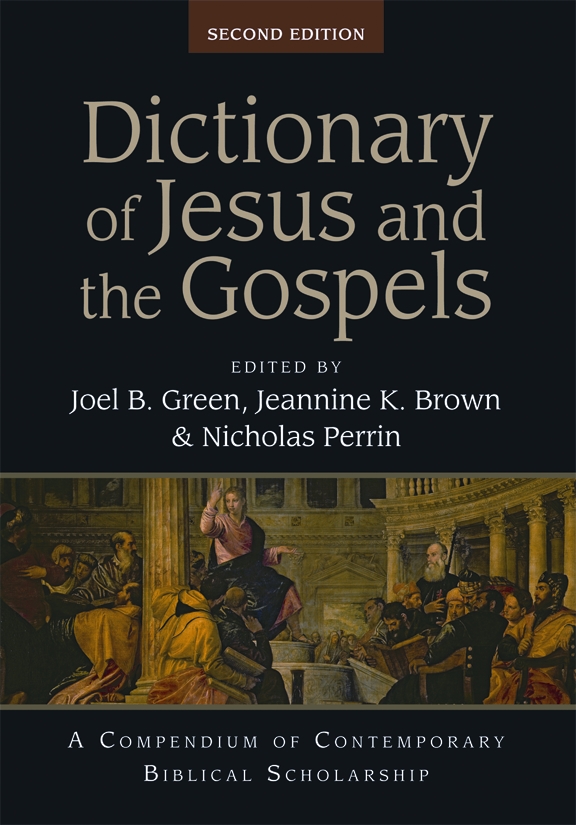
Dictionary of Jesus and the Gospels (2nd edn)
Sorry! Product is not for sale
Description
The Dictionary of Jesus and the Gospels is unique among reference books on the Bible, the first volume of its kind since James Hastings published his Dictionary of Christ and the Gospels in 1909. In the more than eight decades since Hastings, our understanding of Jesus, the Evangelists and their world has grown remarkably. New interpretive methods illumined the text, the ever-changing profile of modern culture has put new questions to the Gospels, and our understanding of the Judaism of Jesus's day has advanced in ways that could not have been predicted in Hastings's day. But for many readers of the Gospels the new outlook on the Gospels remains hidden within technical journals and academic monographs.
The Dictionary of Jesus and the Gospels bridges the gap between scholars and those pastors, teachers, students and lay people desiring in-depth treatment of select topics in an accessible and summary format. The topics range from cross-sectional themes (such as faith, law, Sabbath) to methods of interpretation (such as form criticism, redaction criticism, sociological approaches), from key events (such as the birth, temptation and death of Jesus) to each of the four Gospels as a whole. Some articles - such as the Dead Sea Scrolls, rabbinic traditions and revolutionary movements at the time of Jesus - provide significant background information to the Gospels. Others reflect recent and less familiar issues in Jesus and Gospel studies, such as divine man, ancient rhetoric and the chreiai.
Contemporary concerns of general interest are discusses in articles covering such topics as healing, the demonic and the historical reliability of the Gospels. And for those entrusted with communicating the message of the Gospels, there is an extensive article on preaching from the Gospels.
The Dictionary of Jesus and the Gospels presents the fruit of evangelical New Testament scholarship at the end of the twentieth century - committed to the authority of Scripture, utilising the best of critical methods, and maintaining dialog with contemporary scholarship and challenges facing the church.
The Dictionary of Jesus and the Gospels is unique among reference books on the Bible, the first volume of its kind since James Hastings published his Dictionary of Christ and the Gospels in 1909. In the more than eight decades since Hastings, our understanding of Jesus, the Evangelists and their world has grown remarkably. New interpretive methods illumined the text, the ever-changing profile of modern culture has put new questions to the Gospels, and our understanding of the Judaism of Jesus's day has advanced in ways that could not have been predicted in Hastings's day. But for many readers of the Gospels the new outlook on the Gospels remains hidden within technical journals and academic monographs.
The Dictionary of Jesus and the Gospels bridges the gap between scholars and those pastors, teachers, students and lay people desiring in-depth treatment of select topics in an accessible and summary format. The topics range from cross-sectional themes (such as faith, law, Sabbath) to methods of interpretation (such as form criticism, redaction criticism, sociological approaches), from key events (such as the birth, temptation and death of Jesus) to each of the four Gospels as a whole. Some articles - such as the Dead Sea Scrolls, rabbinic traditions and revolutionary movements at the time of Jesus - provide significant background information to the Gospels. Others reflect recent and less familiar issues in Jesus and Gospel studies, such as divine man, ancient rhetoric and the chreiai.
Contemporary concerns of general interest are discusses in articles covering such topics as healing, the demonic and the historical reliability of the Gospels. And for those entrusted with communicating the message of the Gospels, there is an extensive article on preaching from the Gospels.
The Dictionary of Jesus and the Gospels presents the fruit of evangelical New Testament scholarship at the end of the twentieth century - committed to the authority of Scripture, utilising the best of critical methods, and maintaining dialog with contemporary scholarship and challenges facing the church.
Instant Downloads
Access content immediately after purchase in the appSync to 6 Devices
Download your content to 6 devices including smartphones and tabletsNeed support?
Customer reviews
Download the App
Download the Christian360 App to read eBooks and listen to Audiobooks bought at Christian360
Download the App
Download the Christian360 App to read eBooks and listen to Audiobooks bought at Christian360
